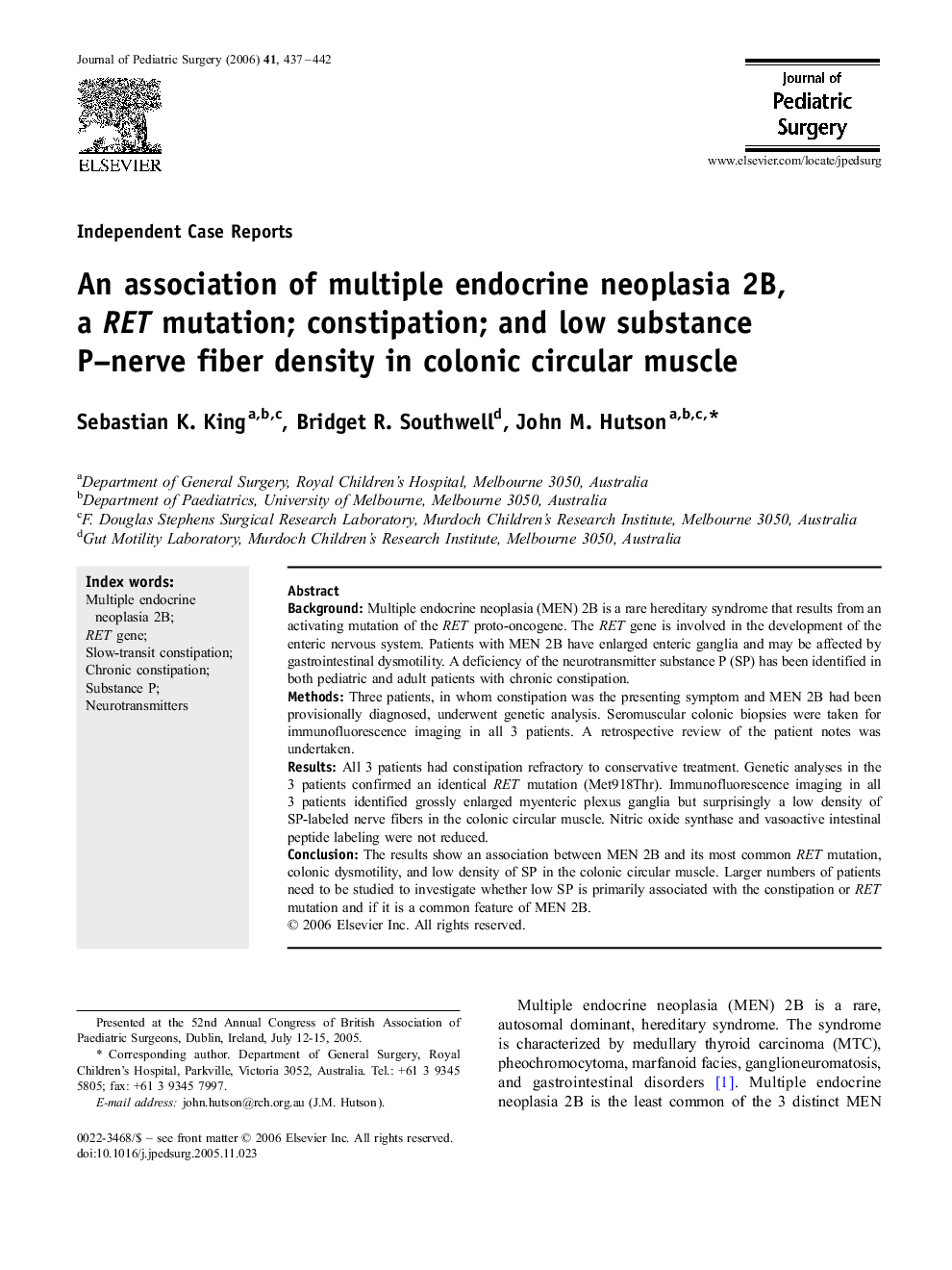| Article ID | Journal | Published Year | Pages | File Type |
|---|---|---|---|---|
| 4161001 | Journal of Pediatric Surgery | 2006 | 6 Pages |
BackgroundMultiple endocrine neoplasia (MEN) 2B is a rare hereditary syndrome that results from an activating mutation of the RET proto-oncogene. The RET gene is involved in the development of the enteric nervous system. Patients with MEN 2B have enlarged enteric ganglia and may be affected by gastrointestinal dysmotility. A deficiency of the neurotransmitter substance P (SP) has been identified in both pediatric and adult patients with chronic constipation.MethodsThree patients, in whom constipation was the presenting symptom and MEN 2B had been provisionally diagnosed, underwent genetic analysis. Seromuscular colonic biopsies were taken for immunofluorescence imaging in all 3 patients. A retrospective review of the patient notes was undertaken.ResultsAll 3 patients had constipation refractory to conservative treatment. Genetic analyses in the 3 patients confirmed an identical RET mutation (Met918Thr). Immunofluorescence imaging in all 3 patients identified grossly enlarged myenteric plexus ganglia but surprisingly a low density of SP-labeled nerve fibers in the colonic circular muscle. Nitric oxide synthase and vasoactive intestinal peptide labeling were not reduced.ConclusionThe results show an association between MEN 2B and its most common RET mutation, colonic dysmotility, and low density of SP in the colonic circular muscle. Larger numbers of patients need to be studied to investigate whether low SP is primarily associated with the constipation or RET mutation and if it is a common feature of MEN 2B.
